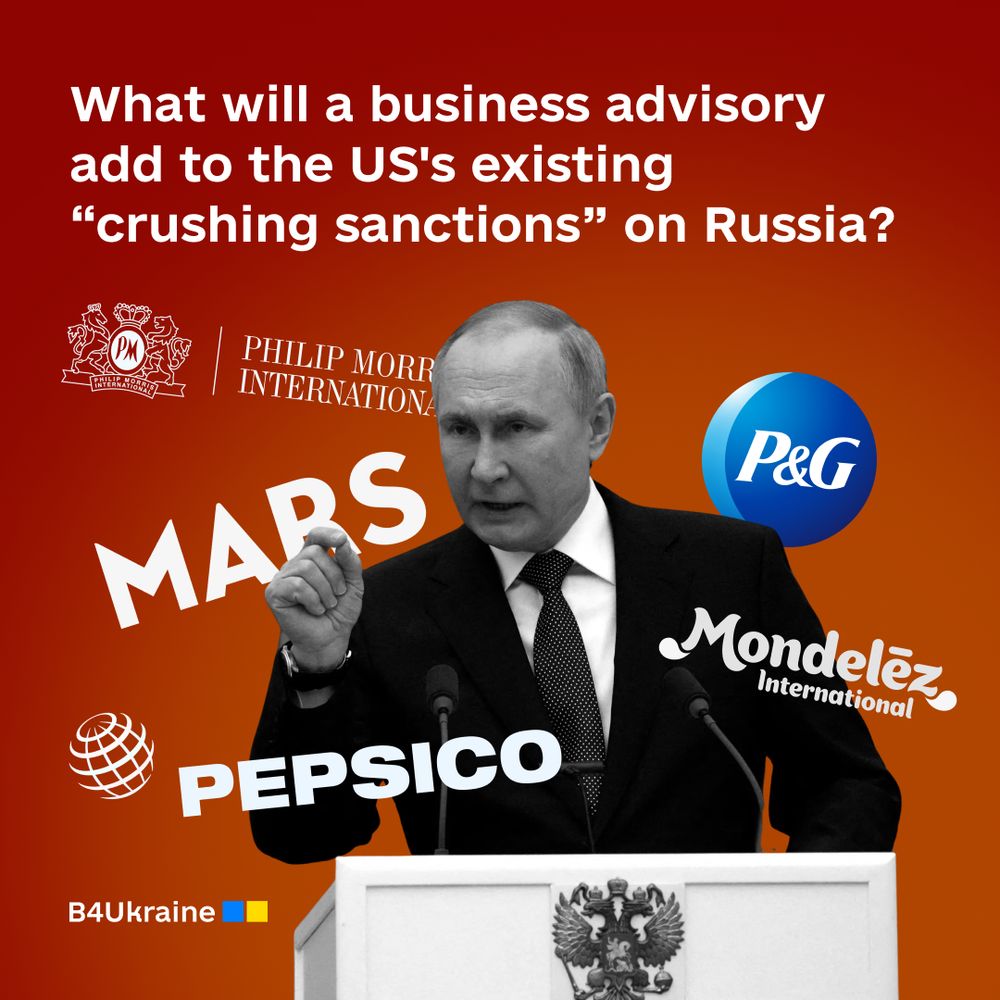
On September 21, during a New York Foreign Press Center Briefing, Under Secretary of State for Economic Growth, Energy, and the Environment Jose W. Fernandez was asked why the U.S. Department of State has been reluctant to issue a business advisory on Russia similar to those issued for other conflict-affected and high-risk areas (CAHRA).
Fernandez said: “We have sanctioned — U.S. companies cannot do business in Russia. We — or anyone making investments in Russia. We have ourselves, together with our partners — the EU, Japan, Korea, and others – have imposed crushing sanctions on Russia. You tell me what a business advisory will add, but I don’t think Russia feels it’s gotten an easy shake on — from the U.S. We have imposed crushing sanctions on them, and we will continue to do so for as long as this brutal invasion continues.”
Unfortunately, that’s simply not the case — U.S. companies can do business in Russia. Hundreds of U.S. companies, including major American brands like Philip Morris International, Procter & Gamble, Mondelēz International, Mars, and PepsiCo continue to operate in, and maintain relationships with, the Russian state.
In 2022, U.S. companies generated more revenue in the Russian market and paid more taxes to the Russian government than any other country. These companies earned more than $40B in revenue, paying $712M in taxes. U.S. companies and individuals with operations in or supply chains tied to the Russian state that do not conduct appropriate due diligence risk engaging in conduct that may expose them to significant reputational, financial, and legal risks, including violations of sanctions, as well as abetting human rights abuses, violation of international humanitarian law, and the rules-based order.
What will a business advisory add to the existing “crushing sanctions” regime? Business advisories serve as a decision-useful economic tool that clarifies for U.S. companies that sanctions compliance is necessary but not sufficient to adequately meet heightened human rights responsibilities in CAHRA, reinforces the U.S. government’s existing policies, and supports U.S. companies and their investors in navigating complex geopolitical contexts.
The United States has issued business advisories for Myanmar, Xinjiang, Hong Kong, Sudan, and Cambodia. Since the Russian invasion of Ukraine, the Biden Administration has released an updated advisory on Sudan, South Sudan, and a “unique” business risk advisory focused on the gold sector across sub-Saharan Africa. Russia’s aggression and the severe risks to Ukrainian civilians and American companies demand a comparable response.